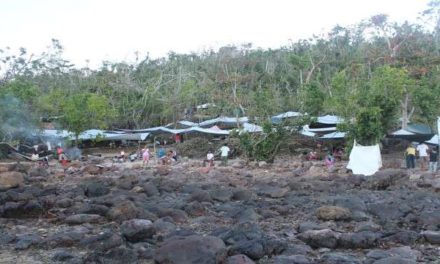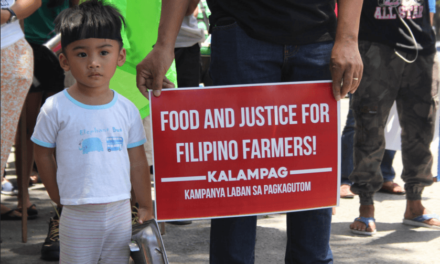Members of the Friends of the Development Box Group: Cuba; Dominican Republic; El Salvador; Haiti; Honduras; Kenya; Nicaragua; Nigeria; Pakistan; Peru; Senegal; Sri Lanka; Uganda; Zimbabwe
Agriculture Negotiations Ignore Concerns of Many Developing Countries
Ministers and scores of delegates of the Friends of the Development Box group, listed above, met this morning to express deep concern about the direction of agriculture talks at the WTO.
Despite active participation in the agriculture negotiations, these talks remain dominated by the EU on the one hand, and the US and Cairns group of exporting countries on the other. As a result, these negotiations have ignored developing country concerns about the problems our small subsistence farmers are facing. Since before Seattle, we have been pushing for a ‘Development Box’ to be included in the Agriculture Agreement, but our proposal has been sidelined. We want specific reference to the ‘Development Box’ included in the text of the Ministerial Declaration.
Minister of Trade for Pakistan, Abdul Razak Dawood said: ‘The impact of the unfair system of agricultural trade has been devastating for developing countries which do not have the resources to subsidize their farmers. We cannot let the livelihoods of the most vulnerable in our countries be blocked by the commercial interests of other countries. Already, the impact of unfair agricultural trade has been devastating for our small farmers, forcing many out of their traditional source of livelihood. We have formed the ‘Friends of the Development Box’ as a Third Force in agriculture negotiations, and will fight for the ‘Development Box’ to be a core component of the Agreement on Agriculture. We need the flexibility to take measures to protect our rural poor.’
PRESENT WTO TRADE RULES LEGITIMISE INEQUITABLE AGRICULTURAL TRADE
The WTO is supposed to ensure equity in trade, but the present agricultural trading system in practice legitimises the inequities, for instance, by allowing the dumping of agricultural products from the North. OECD domestic supports have risen by 50% per cent since the time of the Uruguay Round to over US$ 370 billion today – a figure of $1 billion a day which is roughly equal to the daily income of the poorest 1 billion people in the world. Subsidies comprise 45% of the value of all production. Small farmers in developing countries simply cannot compete in this unfair environment.
Minister for Agriculture for Uganda Edward Rugumayo said: ‘We have to protect our small farmers, make them more efficient and raise their incomes. The issue is the influx of food imports – the result of unfair practices in the developed countries. We need a two pronged approach, raising tariffs on food imports, and while we negotiate with the developed countries for the phased removal of their subsidies.’
Minister of Industry and Commerce for the Dominican Republic Sr Hugo Maximiliano Guiliani said: ‘This group is essential. It enables our country to be taken into account and exert some influence on the agriculture negotiations, to achieve the key objective of rural development and food security. It is essential that we exercise our collective efforts to establish the Development Box.’
WELFARE OF SMALL FARMERS CRITICAL FOR BROAD BASED DEVELOPMENT
In many developing countries, up to 60-90% of our population are small farmers. Agricultural production is critical as the key sources of employment and food security. Because there are no guaranteed alternative sources of employment for such a large number, large-scale food imports for many of our countries are synonymous with importing unemployment and food insecurity.
Minister of Planning for Kenya, Mr Paul Adhu Awiti, said: ‘The Agreement on Agriculture protects the interests of the developed countries at the expense of the developing countries. In spite of this, the Chair has ignored the request from the Friends of the Development Box to include a reference in the revised draft text for the ministerial declaration. It is imperative that paragraph 13 of the draft ministerial text is amended to include an explicit reference to the Development Box.’
The meeting was attended by over 60 delegates and NGOs, many of whom spoke from the floor in support of the Development Box. Duncan Green of the Catholic Aid agency for Overseas Development (CAFOD) said ‘the Development Box marks a new approach to agriculture – setting the rules to meet the needs of poor farmers, rather than obliging them to adjust to liberalisation, whatever the cost’
Contact Information:
Co-ordinator of ‘Friends of the Development Box’
Mr S.I.M. Nayyar, Delegate of Pakistan.
Tel (Doha) 974 48554444
Other Contacts:
Mr. Rashid Kaukab or Mr. Shishir Priyadarshi of the South Centre
Tel. (Doha) 41 79 337 6808
Ms. Claudia Hernandez, Delegate of Dominican Republic,
Tel. (Doha) 41 79285 9793








